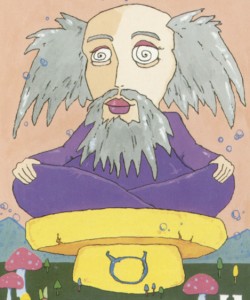Why Do We Meditate?
 In reading the transcript of Christina Feldman‘s talk on Dependent Co-Arising (for the DPP homework assignment), I was struck by her comments on the paradox of meditation, which is that we practice “being with what is,” but we do it in order to develop greater peace, clarity, compassion and wisdom. (Which sounds like we’re trying to find something better than what is.)
In reading the transcript of Christina Feldman‘s talk on Dependent Co-Arising (for the DPP homework assignment), I was struck by her comments on the paradox of meditation, which is that we practice “being with what is,” but we do it in order to develop greater peace, clarity, compassion and wisdom. (Which sounds like we’re trying to find something better than what is.)
Here’s what she says, “This is actually an interesting paradox because it straddles a very fine line. One part of meditation, for example, is the capacity to be in harmony with what is. At the same time, there’s a visionary part in every spiritual practice which is about what is possible. Holding these two together is the challenge of the practice; being with what is through our meditation training, we need to separate from any sense of resignation or passivity.
“Positively, being with what is means seeing the true nature of what’s happening in the moment — it is arising, it is passing, it has its own flavor, etc. On the other hand, knowing what is possible means giving attention to our own capacities for awareness and wisdom, and having the clarity to hold what is happening in the light of wisdom. That’s the visionary part.
“So it’s not about changing the world; it’s not about changing myself into a more enlightened self. It is about the sense of trusting the vision that freedom, clarity and very deep and powerful levels of understanding are possible, that they begin and are born in what is within the field of our experience right now.
“We don’t meditate in order to stay the same. We don’t meditate in order to reject whatever is present in the moment. We meditate in order to find the possibility in the moment, first through seeing the capacity for freedom within that moment.”
(image: Phantasmagoric Theater Tarot)
